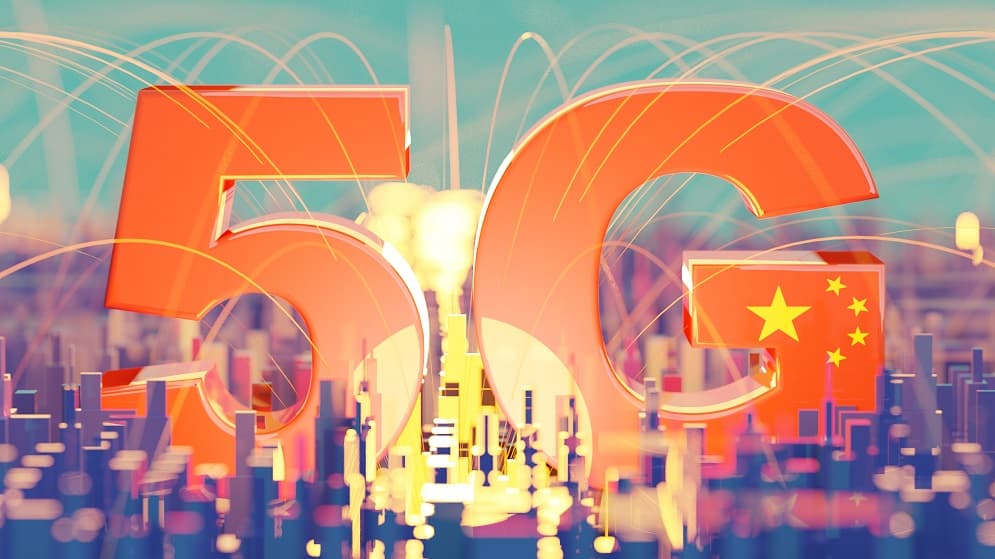RIO DE JANEIRO, BRAZIL – The U.S. government’s plan, called Clean Network, which leaves the Chinese company Huawei out of the 5G technology network structure, “will not be complete without Brazil.” The statement comes from Keith Krach, Undersecretary of Economic Growth, Energy and Environment of the U.S. State Department. With the 5G frequency auction planned for next year, Brazil has become a focal point in the technological war between the world’s two largest economies.
According to Krach, the U.S. is “ready to guarantee in any way an open, innovative and reliable 5G technology” in Brazil. “We’ve been holding talks with the Brazilian government and I think they’re progressing very well. We hope our Brazilian partners will join us in the Clean Network, which will not be complete without Brazil. It is the most powerful country in Latin America and it has been a great friend of the USA,” he said. “Brazil is in the process of making this decision about 5G. There are an increasing number of countries and companies that are challenging Huawei’s reliability,” the undersecretary said.
The U.S. has been lobbying for the Chinese Huawei to be vetoed from participating in bids, on the grounds that it represents a threat to national sovereignty. The company is the world’s largest manufacturer of telecommunications equipment and the leading name in the race to offer 5G technology.

Washington argues that the company is a surveillance arm of the Chinese Communist Party. The Chinese deny it. For Americans, a “clean path” for 5G implies that unreliable suppliers – such as Huawei, from the U.S. viewpoint – should be banned from offering transmission, control or storage equipment.
Krach says the U.S. will respect the Bolsonaro government’s decision, whatever it may be, and said the country “will not cancel any economic negotiations or anything like that” as a result of its decision. However, the undersecretary signals that the country will need to pick a side by repeating three times: “Brazil will have to ask itself: who does it trust?” The issue is being handled by the Office of Institutional Security (GSI) in the Planalto.
Veto on China
In April, the U.S. State Department announced the requirement for a 5G network without Chinese presence in all U.S. diplomatic facilities. In August, Secretary of State Mike Pompeo announced the extension of the Clean Network plan, covering issues on cloud storage, apps and other areas.
A day later, President Donald Trump signed orders to ban TikTok and WeChat apps owned by Chinese companies. Chinese diplomacy, for its part, claims that the US is trying to preserve its monopoly on technology, steal other countries’ right to development, and that the Clean Network is a “bullying manual”.
“What we are only trying to do is to raise countries’ awareness and provide strength and solidarity, because the elephant in the room is always the potential retaliation by China,” Krach said.
According to him, Brazil should engage in a trilateral economic dialogue with Japan and the US soon, when the issue will be discussed again. Japan is one of the 30 countries that the US has announced as part of the Clean Network. The United Kingdom recently joined the group by announcing a total veto on Huawei, which will not be able to take part in the country’s 5G network infrastructure. The measure resulted in an American victory.
“We have increased resources to help fund these 5G networks. We are ready, able and really excited to support Brazil in any way,” Krach said. The US doubled the capitalization of the International Development Finance Corporation to US$60 billion, to fund US companies and allies that help build 5G networks in countries that are committed to keeping Chinese companies out of the network.
He rebuts the argument that technology limitation can increase costs. The Chinese company and sector companies’ argument is that the higher operating cost could be passed on to consumers, which would compromise large-scale technology advancement. Krach says the argument is “part of Huawei’s misinformation campaign” and that countries that blocked the Chinese “saw no significant increase in costs.”
The undersecretary is proud to say that the US Ambassador to Brazil, Todd Chapman, was his senior advisor before taking over the Embassy in Brasília. Chapman said recently that the country will suffer consequences if it allows Huawei to operate the 5G network, such as investment flight by American companies.
Source: O Estado de S. Paulo

